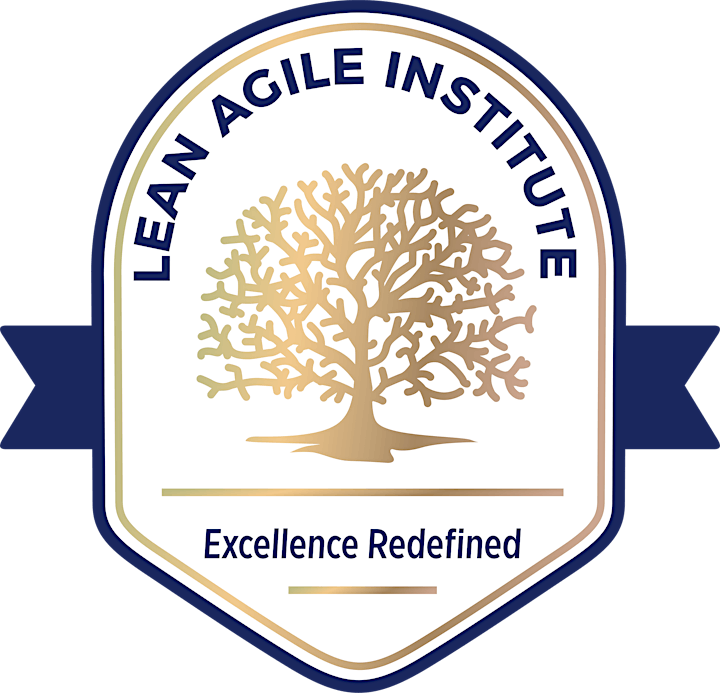
About this Event
Certified Lean Kanban Professional (LAI-LKP)
Join us for an exciting in-person event in Washington D.C., DC, USA to become a Certified Lean Kanban Professional! This intensive course will equip you with the skills and knowledge needed to implement Lean principles and Kanban practices effectively. Whether you're new to Lean and Kanban or looking to enhance your existing knowledge, this event is perfect for you. Don't miss out on this opportunity to take your career to the next level!
Certification Overview
Kanban is a visual system for managing work as it moves through a process. Kanban visualizes both the process (the workflow) and the actual work passing through that process. The goal is to identify potential bottlenecks in the process and fix them so work can flow cost-effectively at an optimal speed or throughput.
It is a set of principles and practices that have been observed in successful Kanban initiatives worldwide. Since its inception, it has developed and matured as an effective approach for organizations to achieve greater business agility.
Today, leaders are leveraging Kanban and the associated Lean-Agile principles across all aspects of business, from marketing to legal to finance, Agile, and DevOps teams.
Kanban embraces the constant change inherent to managing knowledge work and enables IT, financial services, insurance and global organizations to become more collaborative, unified and productive in the face of growing competitive pressures and organizational complexity.
Learning Objectives
After going through Lean Kanban Professional (LKP) certification course, the learners are able to:
- Design and implement a full Kanban System.
- Use important Kanban System metrics to measure and understand different aspects of the system and to manage flow.
- Utilize key Kanban metrics to make continuous improvements, like reduce time to market and improve predictability.
- Focus on optimizing for the whole and limiting work in progress.
- Increase visibility to increase collaboration and eliminate waste.
- Use tools and techniques needed to start improving their organization and measuring the improvements.
- Apply core concepts of Lean (Flow, Eliminating Waste, Cost of Delay, Limiting Work in Progress).
- Work with shifting priorities, interrupt work and multi-tasking.
- Deal with Important, Time-Critical and Non-Time Critical Work.
- Deal with Bottlenecks and Slack in the System.
- Understand how Kanban practices can help to satisfy customers’ expectations and rapidly meet customer demands and expectations.
- Adapt to external and internal changes and lead Change improving culture, practices, and outcomes.
- Describe a set of practices for Kanban at enterprise scale.
- Assess the current state of an organization to see where challenges and opportunities lie on the path to greater business and organizational agility.
- Helps managers and teams understand the system and establish a Decision Making and Risk Management Framework.
Curriculum
Module 1: Introduction to Kanban
- Objective: Understand core concepts of Lean and Kanban.
- Topics:
- Overview of Lean principles: Flow, Eliminating Waste, and Cost of Delay.
- Introduction to Kanban: History, philosophy, and key components.
- Importance of Limiting Work in Progress (WIP).
- Activities: Interactive discussion on Lean principles and their importance in modern workflows.
Module 2: Designing a Kanban System
- Objective: Design and implement a full Kanban system.
- Topics:
- Steps to design a Kanban system.
- Key elements of a successful Kanban system.
- Practical workshop on setting up a Kanban board.
- Activities: Group activity to design a Kanban system for a real project chosen by the participants.
Module 3: Metrics and Measurement
- Objective: Use Kanban system metrics to manage flow and make improvements.
- Topics:
- Key Kanban metrics (Lead time, Cycle time, Throughput, etc.).
- Tools for measuring and understanding system metrics.
- Case studies on metric-driven improvements.
- Activities: Hands-on exercises with real-world data to practice metric calculations and interpretations.
Module 4: Continuous Improvement and Optimization
- Objective: Utilize Kanban to make continuous improvements and focus on optimizing the whole system.
- Topics:
- Techniques for continuous improvement (Kaizen).
- Strategies to reduce time to market and improve predictability.
- Limiting work in progress and managing workflow.
- Activities: Simulation games to experience the effects of system optimizations.
Module 5: Advanced Kanban Tools and Techniques
- Objective: Increase system visibility, collaboration, and efficiency.
- Topics:
- Advanced Kanban tools and software.
- Techniques to increase visibility and collaboration.
- Dealing with shifting priorities and interrupt work.
- Activities: Role-playing to handle real-time priority changes and interruptions.
Module 6: Dealing with System Dynamics
- Objective: Manage bottlenecks, slack, and different types of work.
- Topics:
- Identifying and managing bottlenecks.
- Balancing slack for efficiency.
- Differentiating and managing time-critical and non-time-critical work.
- Activities: Case study analysis and group discussions.
Module 7: Leading Change and Enterprise Kanban
- Objective: Adapt to changes and lead enterprise-wide Kanban initiatives.
- Topics:
- Leading change in organizational culture and practices.
- Kanban at enterprise scale.
- Developing a Decision Making and Risk Management Framework.
- Activities: Workshop on change management and strategic decision-making.
Module 8: Assessment and Application
- Objective: Assess organizational agility and apply Kanban practices effectively.
- Topics:
- Tools for assessing current organizational state.
- Strategies for applying Kanban to improve organizational outcomes.
- Final project: Implementing a Kanban system in an organizational context.
- Activities: Capstone project and peer review.
Business and IT Managers
Project Managers
Product Managers
Team Leaders
Executives & Leaders
Business Analysts
Agile / DevOps Team Members
Enterprise Architects
Information Managers
Lean, Agile and DevOps Coaches

PREREQUISITES
There is no prerequisite.
Digital Course Workbook
LAI-LKP Certificate and Credential
After successful completion of this course, you are eligible to receive LAI-LKP certification and Credential.
The assessment of the knowledge acquisition by the student will be based on the engagement and participation by the students in different exercises and activities during the class. As part of the assessment, the participants will also be asked to submit a blog based on their learnings in the class.
After the class, the students will receive an email from Lean Agile Institute with the Certificate and the Credential.
Cancellation and Refunds
Substitutions are accepted at any time. Cancellations must be notified by email and refunds will be provided according to the following:
LAI reserves the right to postpone or cancel this event if there are less than 6 registrations or if presenters are unable to attend due to illness. If necessary, you will be notified no later than 5 days prior to the event and all registration payments will be refunded promptly. We will not be responsible for any other costs incurred.

Event Venue & Nearby Stays
Washington D.C., DC, USA, Washington D.C., DC, USA, Washington, United States
USD 2135.99
